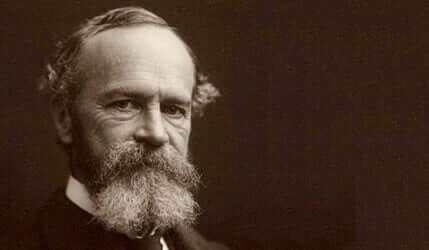Discover the biography of William James, a man who was more than a remarkable philosopher of the late 19th century. Until his arrival, American society associated psychology with simple guessing or mind reading practices.
Thanks to him and the experimental psychology lab he founded at Harvard, this field has established itself as a scientific discipline, and James has established himself as one of the great pioneers in this field.
- Today.
- Many still regard James as the most eminent American philosopher of his time and also the father of modern psychology.
- His work encompasses a variety of disciplines.
- From epistemology to education.
- Metaphysics.
- Religion.
- Mysticism.
- Anatomy and.
- Of course.
- Psychology.
The way in which William James stood out and became one of the leaders in this field of knowledge was undoubtedly as unique as it was important, as he spent much of his youth suffering from various health problems, strange diseases and physical limitations, such as partial deafness
All these conditions and discomfort led him, at some point in his life, to think of suicide, in this state of apparent melancholy concludes that what afflicts him is nothing more than a disease of the mind and also of the soul.
For this reason, he wanted to search other areas to look for answers in the knowledge and disciplines that finally gave him great perspectives: philosophy and psychology.
“The deepest principle of human nature is the desire to be appreciated. “William James?
James was born in 1842 into a family characterized by artistic, scientific and intellectual interest. His parents evolved among the cultural elites of the time and decided to give their children as eclectic and cosmopolitan an education as possible.
He spent much of his childhood traveling the world with his family. At first, I felt an artistic penchation for painting; then he was attracted to science. Then, in 1861, he began his medical studies at Harvard University.
By this time, his brother, Henry James, was already beginning to excel in the literary field, while his sister Alice was excelling in the field of history.
At one point, William decided to postpone his medical studies and undertake a scientific expedition through the Amazon with the naturalist Louis Agassiz, however, this journey took nearly two years to serve as an adequate period of personal reflection.
Medicine wouldn’t be your only area of work and study, your mind, your innate curiosity about the brain and human behavior demanded much more Did you want to deepen more areas of knowledge?
William James spent his entire academic career at Harvard, first a professor of physiology, after anatomy, psychology and later philosophy. His most important work was published in 1890, shortly after the creation of the university’s first experimental psychology laboratory.
This rather pragmatic view of psychology as science has made William James one of the forerunners of functionalism, an approach that would lead to the emergence of behaviorism.
“All our efforts to explain thoughts as products of deeper entities are metaphysical. For this reason, I reject associative and spiritual theories to define what psychology is to me. My point of view is strictly positivist, so I’m tempted to say I have originality?
William James wanted to deepen and outline the study of consciousness through experimental physiology, and did so with other experts, such as Henry Pickering Bowditch and James Jackson Putnam.
All of this had a very specific purpose: to try to place consciousness in an area of the brain.
With William James’ interest in understanding human behavior, it was almost inevitable that at some point in his career he would direct his scientific curiosity into the field of emotions.
William James died of heart failure at his Home in New Hampshire on 26 August 1910, was 68 years old and left a huge, varied and fascinating legacy for psychology.
He founded the Philosophical School of Pragmatism and Functional Psychology, in addition, established empiricism in his scientific studies and was finally one of the first psychologists to delve into the study and understanding of the brain.
Thanks to him, the first pillars of these psychological disciplines have been erected, which continue to progress today.

